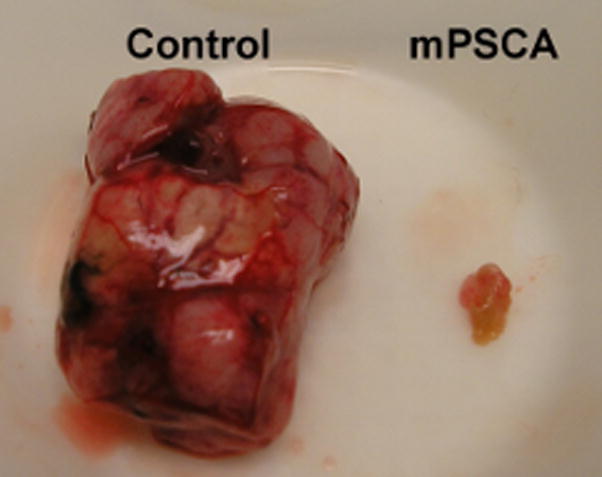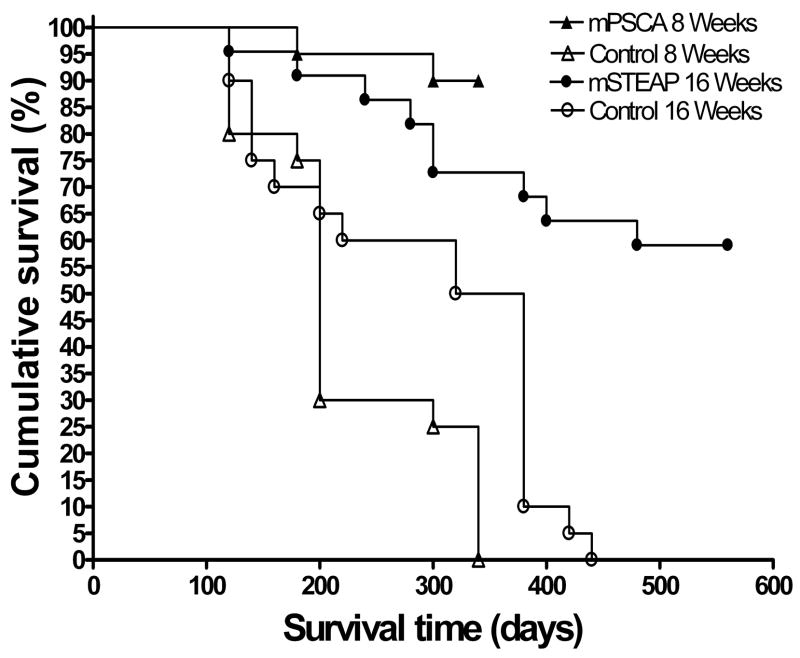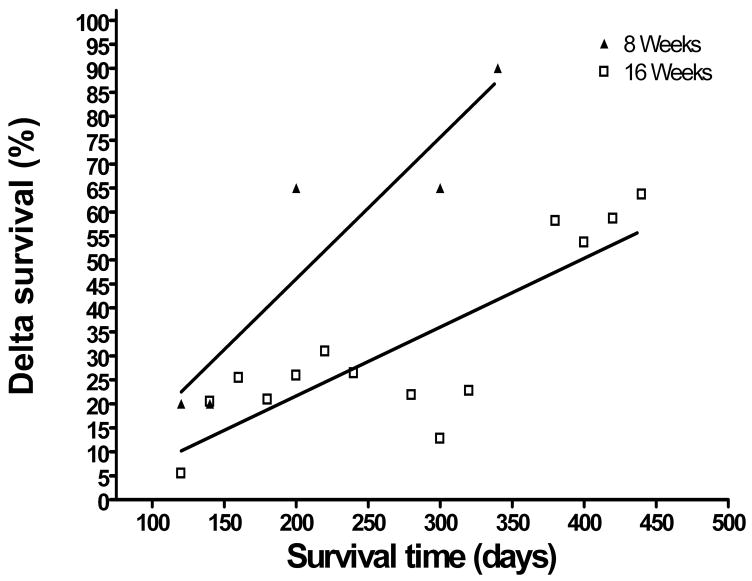Figure 1.

Figure 1a. Therapeutic vaccination against prostate tumor-associated antigens results in long term survival in TRAMP mice. Groups of 20 male 8 week old TRAMP mice were vaccinated by helium-driven gene gun at day 0 with either 2 ug mPSCA-pcDNA or 2 ug empty vector and boosted at days 15 and 60 with 106 IU mPSCA-VRP and 106 IU GFP-VRP, respectively. Groups of 20 male 16 week old mice were vaccinated by helium-driven gene gun with either 2 ug mSTEAP-pcDNA or 2 ug empty vector and boosted at days 15 and 60 with 106 IU mSTEAP-VRP and 106 IU GFP-VRP, respectively.
Figure 1b. Therapeutic vaccination against mPSCA results in reduced prostate tumor burden in TRAMP mice. All surviving mPSCA-vaccinated TRAMP mice and their age-matched controls were euthanized at day 340 and necropsy performed. Representative images of a prostate tumor isolated from a negative control animal (left, “Control”) and that of an mPSCA-vaccinated mouse (right, “mPSCA”) are shown.
Figure 1c. Therapeutic vaccination against prostate tumor-associated antigens results in superior survival when administered to TRAMP mice with PIN lesions. The difference between the cumulative survival of each group of vaccinated mice and the cumulative survival of their age-matched controls was calculated at each time point at which one or more mice died. This value was termed “delta survival” and was plotted against survival time. Linear regression analysis was performed on each data set, and the slopes of the regression lines compared.


